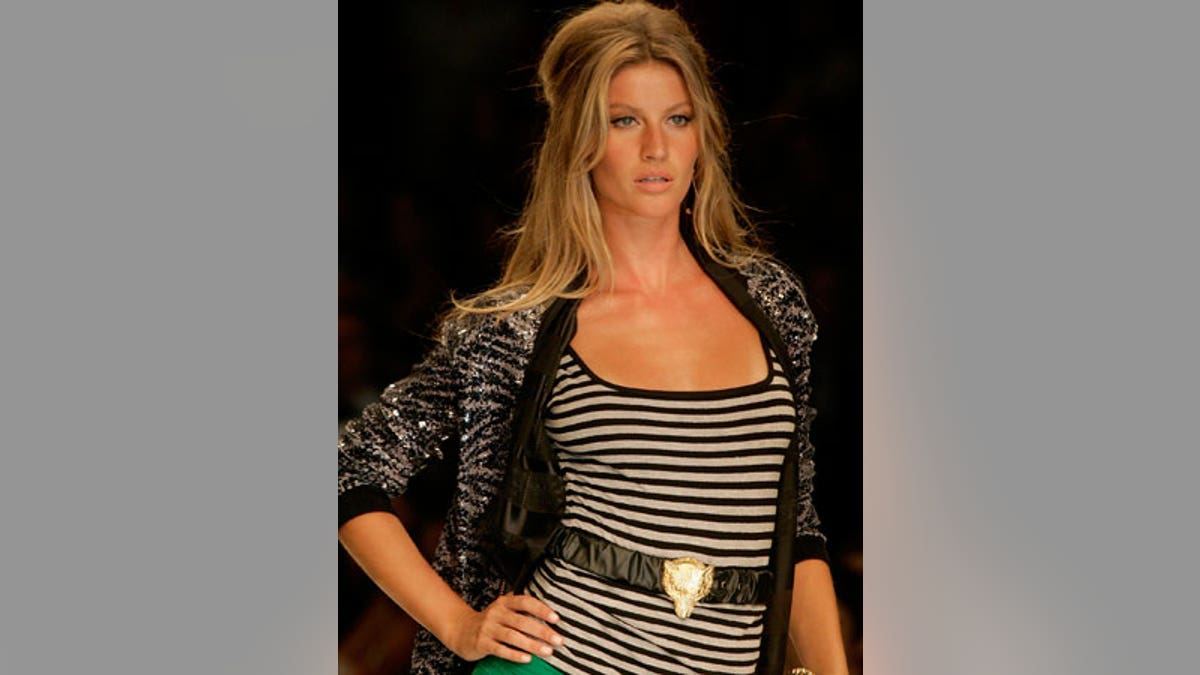
Gisele Bundchen is famous for being the world’s highest paid supermodel, marrying NFL superstar Tom Brady, and now trying her hand at being an expert on breast-feeding.
The 5-foot-11 Brazilian model is causing quite a stir after an interview with Harper’s Bazaar where she told the British magazine that all women should be forced to breast-feed.
"I think there should be a worldwide law, in my opinion, that mothers should breast-feed their babies for six months," said Bundchen, 30.
SLIDESHOW: Celebs Who Advocate Breast-feeding
She went on to criticize American women who do not breast-feed their babies.
"Some people here [in the U.S.] think they don't have to breast-feed, and I think 'Are you going to give chemical food to your child when they are so little?'" she said.
Bundchen may think since she is a United Nations earth mother, she has the authority of “motherly law,” even though she only breast-fed her son, Benjamin, for three weeks.
What she doesn’t know, is not every mother can relate to a woman who describes labor as “painless,” thanks to meditation, of course. Oh, and did we mention—she gave birth in Tom Brady’s bathtub.
Dr. Manny Alvarez, senior managing health editor of FoxNews.com and chairman of OB/GYN at Hackensack University Medical Center, said although breast-feeding is great for babies, it is ultimately a mother’s personal choice.
“For Gisele to give a public statement like that is unfair to other mothers. There are maternal and fetal challenges to breast-feeding,” Alvarez said.
Alvarez told FoxNews.com there are countless reasons why some women are unable to breast-feed, even if that was originally their preference.
For example, women who have undergone mastectomies due to breast cancer, or have other health problems and are on medication that babies cannot be exposed to, may be unable to breast-feed their children – even if they want to. And, some women cannot physically produce enough breast milk.
“We live in a world where more and more women who have challenging chronic diseases are able to have beautiful babies, but they have to go back on medications to keep themselves healthy after the baby is born,” he said. “Why should they feel like they are doing something wrong?”
There also are many conditions where the mother may be able to breast-feed, but the baby is unable to – for example, the baby may not be able to latch onto the mother’s breast or the baby may have difficulty digesting the breast milk.
“There are some facial deformities, like cleft paletes, that make it nearly impossible to breast-feed. There are devices that could help, but it is still challenging,” he said. “There is also the case of premature babies. These babies don’t have the mature motor skills they need to be breast-fed.”
Although Alvarez said breast-feeding is still considered the gold standard and should be encouraged, it should never be forced.
